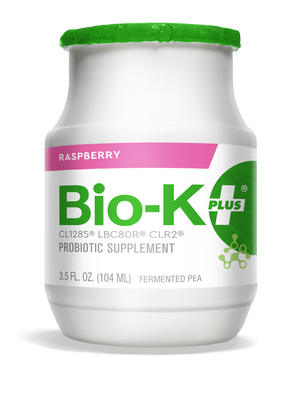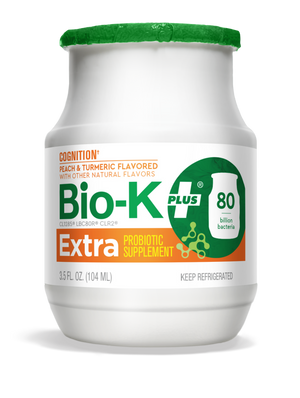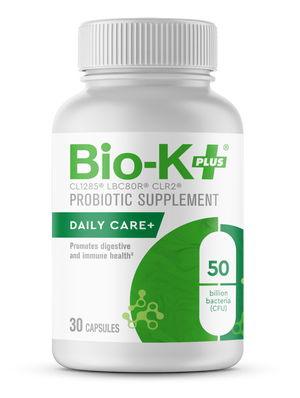Is it Irritable Bowel Syndrome or just a troubled tummy? Here’s how to tell.
With digestion being such a hot topic, it can be easy to think that everyone has tummy troubles. After all, who hasn’t suffered from gas and bloating time to time? It is important to understand that a normal gut is going to complain once in a while. Eat a giant plate of roasted cauliflower and chickpeas? The gas you will likely experience is normal – and healthy. It’s the result of all the good gut foods you just ate, loaded with fibre to feed your beneficial bacteria. Bloating can sometimes be attributed to weak abdominal muscles that allow the gases to expand the intestines visibly. It’s even normal to miss a trip to the bathroom every once in a while, particularly if you have been slack on your water intake or just crossed time zones.
But what if it’s more than that? As many as 5 million Canadians suffer from irritable bowel syndrome, or IBS, according to the Canadian Digestive Health Foundation. One of the biggest challenges with IBS is that it isn’t a clear cut diagnosis. Your doc needs to do a thorough work up, ruling out all other potential causes of gut distress, such as Celiac Disease.
One of the most important things you can do if you think you have digestive issues is to keep a food and symptom journal. Jot down everything you eat and drink, along with any symptoms you experience and when they occur. This document will be crucial for figuring out if you just need to eat more fibre, lay off the sweets or if you have irritable bowel syndrome. Don’t attempt to self-diagnose; work with your physician and a registered dietitian who may be able to point out some factors you might miss on your own.
Wondering what IBS really is? The standard diagnostic tool for Irritable Bowel Syndrome is called the Rome III criteria, which are as follows, verbatim:
“Recurrent abdominal pain or discomfort** at least 3 days/month in the last 3 months associated with two or more of the following:
– Improvement with defecation
– Onset associated with a change in frequency of stool
– Onset associated with a change in form (appearance) of stool
- Criterion fulfilled for the last 3 months with symptom onset at least 3 months prior to diagnosis
- ** “Discomfort” means an uncomfortable sensation not described as pain.
- In pathophysiology research and clinical trials, a pain/discomfort frequency of at least 2 days a week during screening evaluation is recommended for subject eligibility.
If this sounds like you, start your food and symptom journal and book an appointment with your doc. Once you get to the root of your tummy troubles, there are plenty of therapeutic options, like a low FODMAP diet or probiotics, that can help bring relief.





